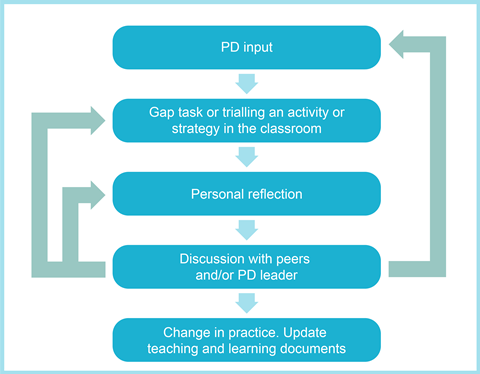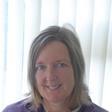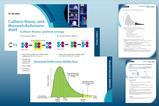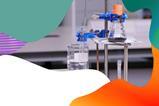Find out about the high-quality, hands-on development tools available for teachers – and why teachers aren’t accessing them

Professional development (PD) can take many formats and some, without doubt, are more effective than others. Recent education research, the DfE Standards for PD and the Education Endowment Foundation (EEF) Effective professional development guidance report have all led to a better understanding of what effective PD looks like. We know PD is best when it offers the chance for hands-on learning, opportunities to share best practice with colleagues, plus time to reflect and plan next steps. It’s also important that the training is relevant to particular school priorities and individual personal development goals, and that it has the support and buy-in of both senior leaders and teachers themselves.
Furthermore, while there is a place for high-quality online training, many teachers still prefer in-person PD, as well as PD that is sustained over time (see image), allowing greater opportunities for reflection on, and application of, what they have learned.
The importance of subject-specific PD
The concept of pedagogical content knowledge (PCK) was developed in the 1980s by Lee Shulman. This emphasises that, on top of all their subject knowledge (SK) and general pedagogy, teachers also need to be able to teach science in a way that students actually learn. For example, a chemistry ECT may have fantastic chemistry knowledge, but be limited in their subject knowledge for teaching (SKT) or PCK. A biologist teaching chemistry may have good SKT, but could be lacking in areas of chemistry SK and PCK. Every time the curriculum changes, even experienced science teachers will need to brush up their SKT. Science and its applications are constantly changing, so it’s important for all science teachers to keep their SK up to date.
The majority of teaching staff in mainstream state schools said they had not received adequate CPD in the last three years
Many professional societies and science education organisations recognise the importance of subject-specific PD, including the Royal Society of Chemistry (RSC), CLEAPSS, SSERC, the Irish Science Teacher Association and others. Teachers often go to these trusted organisations when looking for high-quality PD. It is also common practice for some Multi-Academy Trusts (MATs) to provide all their PD internally. This often works well, especially when they access an external PD leaders programme. In other cases, opportunities for the subject-specific PD can be limited.
Teachers regularly request subject-specific PD at all levels, ranging from help with assessments and planning practical work, to support with tricky-to-teach topics, such as analytical chemistry, dynamic equilibrium and electrolysis. In response, the RSC offers a range of PD activities, including: on-demand online courses designed to give users an in-depth understanding of all key concepts in a particular topic; live online sustained PD courses, normally running over a period of four months; blended courses, offering the opportunity for in-person practical activities that complement online sessions; in-person courses, that can be tailored to meet the needs of a group of schools or teachers; mentoring; and EiC PD articles focusing on how to teach specific topics or skills. The National STEM Centre at the University of York also offers intensive residential PD.
Teachers regularly request subject-specific PD at all levels, ranging from help with assessments and planning practical work, to support with tricky-to-teach topics, such as analytical chemistry, dynamic equilibrium and electrolysis. In response, the RSC offers a range of PD activities, including: on-demand online courses designed to give users an in-depth understanding of all key concepts in a particular topic (rsc.li/3osPTcw); live online sustained PD courses (rsc.li/3OH83St), normally running over a period of four months; blended courses, offering the opportunity for in-person practical activities that complement online sessions; in-person courses, that can be tailored to meet the needs of a group of schools or teachers; mentoring (rsc.li/45zLp4p); and EiC PD articles (rsc.li/3C2uqKv) focusing on how to teach specific topics or skills. The National STEM Centre at the University of York also offers intensive residential PD.
Good versus bad
The Science Teaching Survey 2022 provides valuable insights into the good and the bad of PD:
- ‘Good training days are the ones where you have time to apply your learning and are hands on, so we actually get a chance to try things out and ask questions.’
- ‘Bad training days are when they just talk at us the whole time, you’re just sat there for hours on end, and a lot of the time it’s one size fits all. So, it’s the same training for everybody despite what career stage you’re at. There’s no opportunity to pursue things that are actually of interest to you …’
Barriers to access
Despite this apparent plethora of learning opportunities, according to the 2022 Science Teaching Survey, the majority of teaching staff in mainstream state schools said they had not received adequate continuing professional development (CPD) in the last three years. This has an impact. Teachers who reported inadequate PD were more likely to consider leaving the profession in the next five years. Meanwhile, respondents who felt they had received adequate PD in the last three years were consistently more likely to report higher levels of job satisfaction.
Despite this apparent plethora of learning opportunities, according to the 2022 Science Teaching Survey (rsc.li/3oBOTCQ), the majority of teaching staff in mainstream state schools said they had not received adequate continuing professional development (CPD) in the last three years. This has an impact. Teachers who reported inadequate PD were more likely to consider leaving the profession in the next five years. Meanwhile, respondents who felt they had received adequate PD in the last three years were consistently more likely to report higher levels of job satisfaction.
So where is it going wrong? We know what good-quality PD looks like. We know what teachers want. There is a wealth of PD opportunities available, delivered in many ways. So why aren’t teachers accessing the PD they need?

The reality is schools are very busy places, often with staffing issues, limited budgets and conflicting priorities, leaving little time and space for PD. Many senior leaders do not want teachers out of lessons, as this leads to potential learning loss, especially where there is limited access to good-quality supply teachers.
And there is evidence that cost is not always the limiting factor. There are cases of ENTHUSE partnerships failing to use all their PD funding and teachers failing to turn up for already-paid-for courses.
In fact, the DfE’s workload report found that 66% of teachers and leaders said the biggest barrier to accessing CPD was workload and competing priorities.
And there is evidence that cost is not always the limiting factor. There are cases of ENTHUSE partnerships failing to use all their PD funding and teachers failing to turn up for already-paid-for courses.
In fact, the DfE’s workload report found that 66% of teachers and leaders said the biggest barrier to accessing CPD was workload and competing priorities.
The process of accessing PD in schools can indeed be cumbersome for teachers, including the burden of finding an appropriate course, and getting it approved and booked through senior leaders, as well as organising childcare or teaching cover. So it’s easy to see why some may feel as though PD is not always worth the hassle. However, where high-quality, hands-on options are available, the benefits speak for themselves. Is it time that your workplace made subject-specific PD a higher priority?
What teachers want
What do teachers want to get out of PD?
- ‘Teachers are looking for good PD that addresses both subject knowledge and PCK. They want to know what works in the classroom and what to do when things go wrong.’
A science PD provider - ‘Our findings suggest that there needs to be a much greater focus on developing teachers’ expertise in relation to specific areas of the science curriculum and engaging with science-specific research.’
Finding the optimum: the science subject report from OFSTED, 2023 - ‘We get lots of PD requests around science misconceptions. Teachers want to know what the misconception is, where students pick it up and how to deal with it.’
Chemistry hub lead teacher
Dorothy Warren is an independent science education consultant














No comments yet